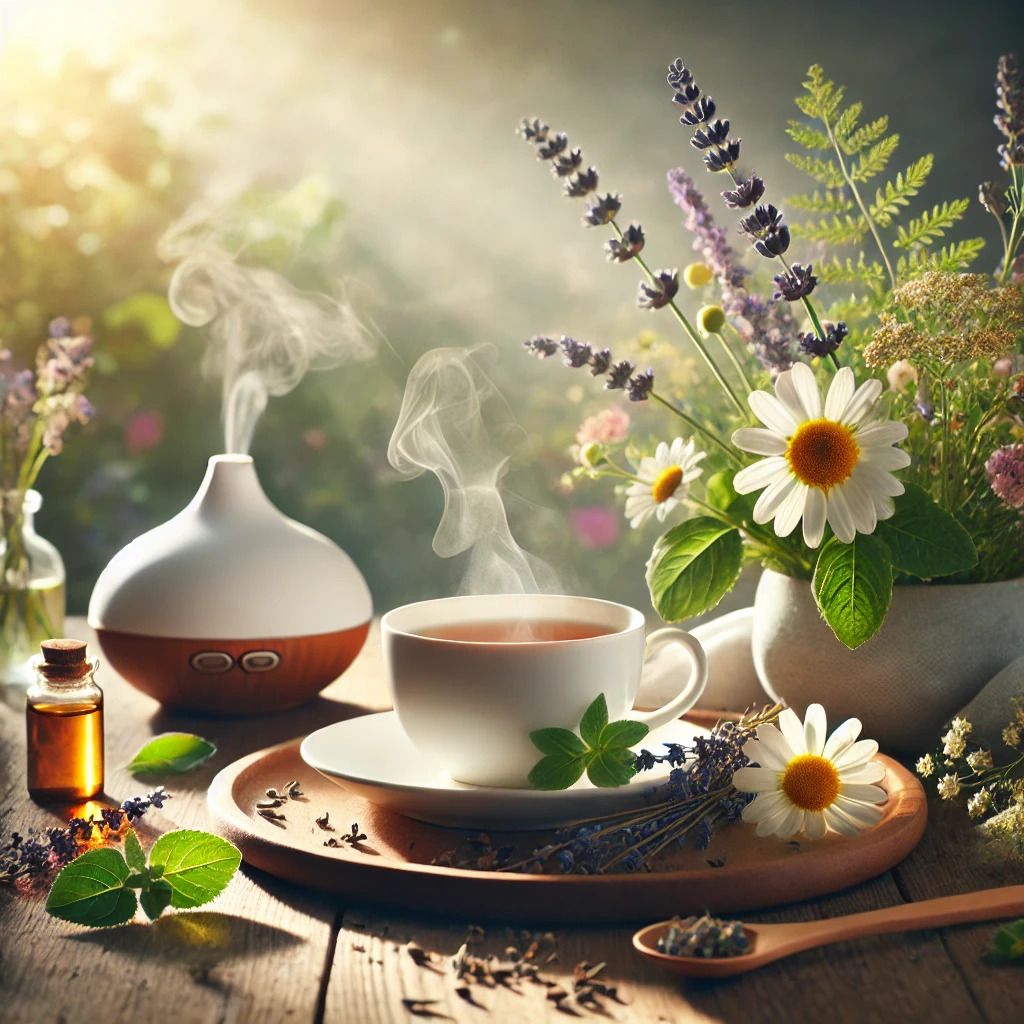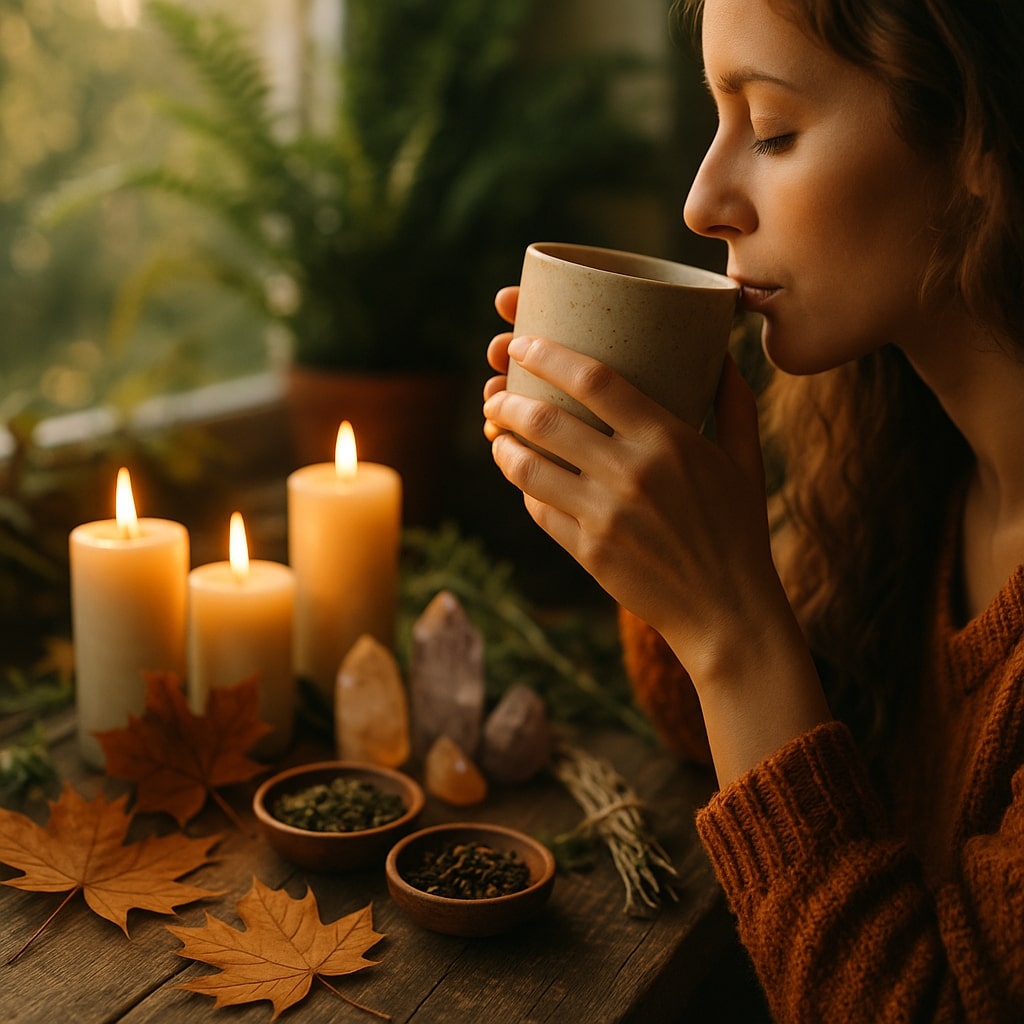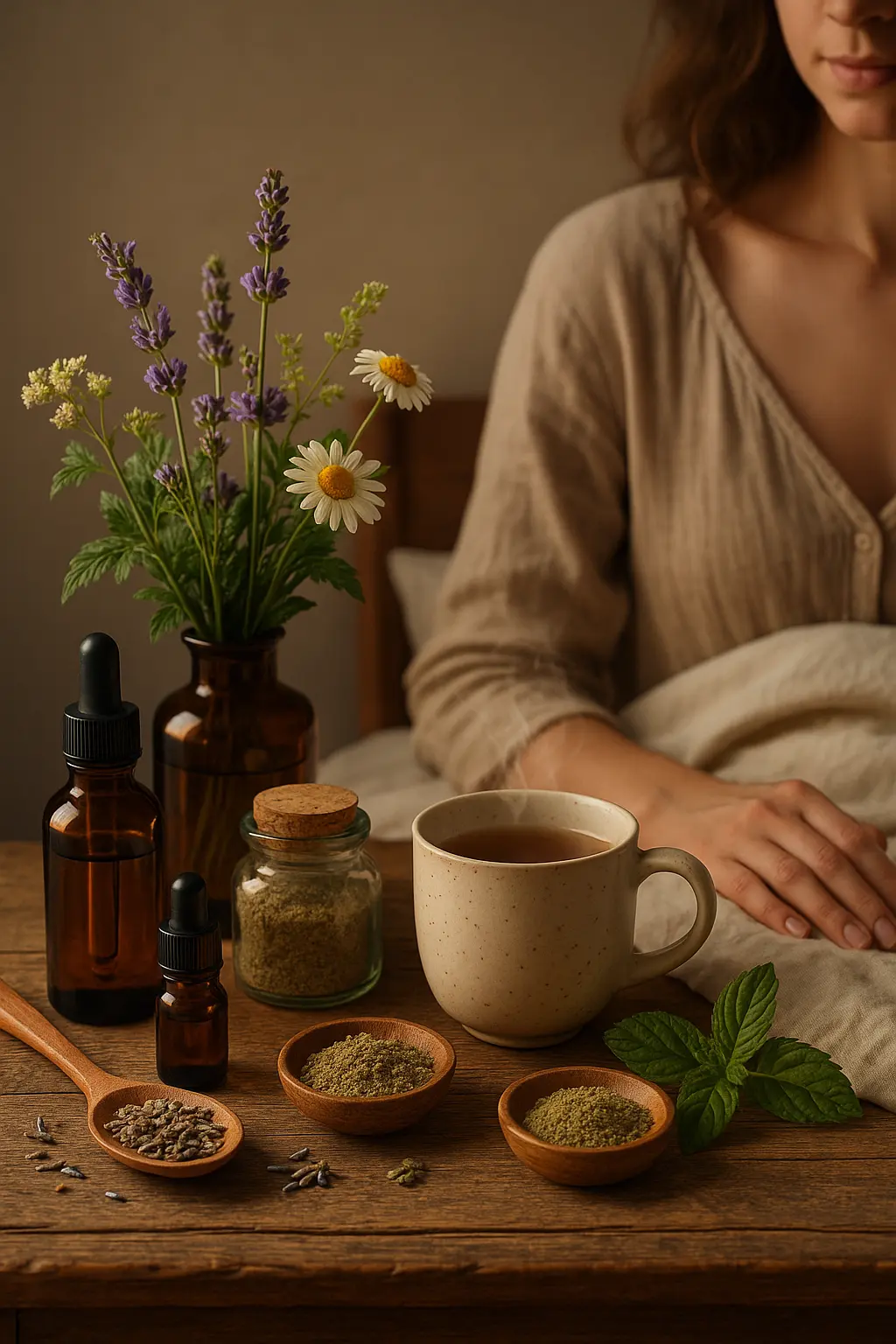In today’s fast-paced world, anxiety has become a common challenge for many. Whether it’s work stress, personal struggles, or the constant barrage of information from our digital lives, anxiety can often feel overwhelming. The good news? Nature offers us powerful tools to help manage and relieve anxiety. By using herbs, you can harness the calming power of nature to restore balance to your mind and body. This guide will walk you through natural remedies that both beginners and experienced herbalists can use for anxiety relief.
Understanding Anxiety: Why Turn to Natural Remedies?
Anxiety manifests in various ways – racing thoughts, a pounding heart, sleepless nights, or a constant sense of unease. While modern medicine provides solutions like therapy and medications, many people are exploring natural remedies to complement their mental health care.
Takeaway Point: Herbs provide a gentle, natural alternative to managing anxiety, reducing side effects often associated with pharmaceutical treatments.
Why Choose Herbs?
- Minimal Side Effects: Unlike many prescription medications, herbs tend to have fewer side effects and are generally safer for long-term use.
- Holistic Healing: Herbs don’t just treat anxiety; they often support overall well-being by addressing the root cause.
- Accessible: Herbal remedies can often be found in your kitchen, garden, or our online store, making them convenient and effective.
Top 5 Herbs for Anxiety Relief
1. Lavender (Lavandula angustifolia)
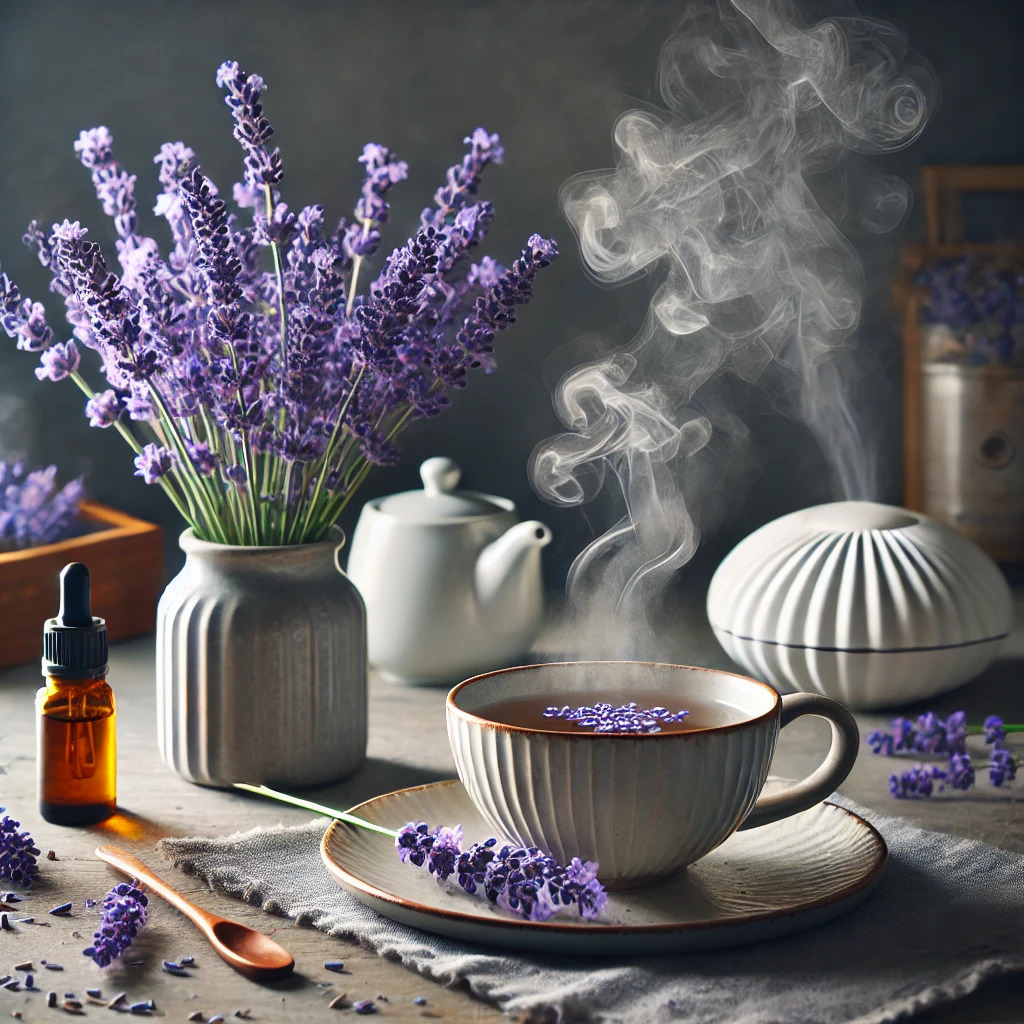
Lavender is renowned for its calming scent and has been used for centuries to ease anxiety and promote sleep. It’s versatile and can be used in several forms, from teas to essential oils.
How to Use:
- Tea: Brew a calming lavender tea by steeping 1-2 teaspoons of dried lavender flowers in hot water for 5-10 minutes.
- Essential Oil: Add a few drops of lavender essential oil to a diffuser or rub onto your wrists for instant relaxation.
Advanced Tip: Create a lavender-infused oil by soaking dried lavender in a carrier oil (like coconut oil) for 4-6 weeks. This can be applied directly to the skin or added to bathwater for deeper relaxation.
Takeaway Point: Lavender is a go-to herb for relaxation and sleep support, with multiple applications for stress relief.
2. Ashwagandha (Withania somnifera)
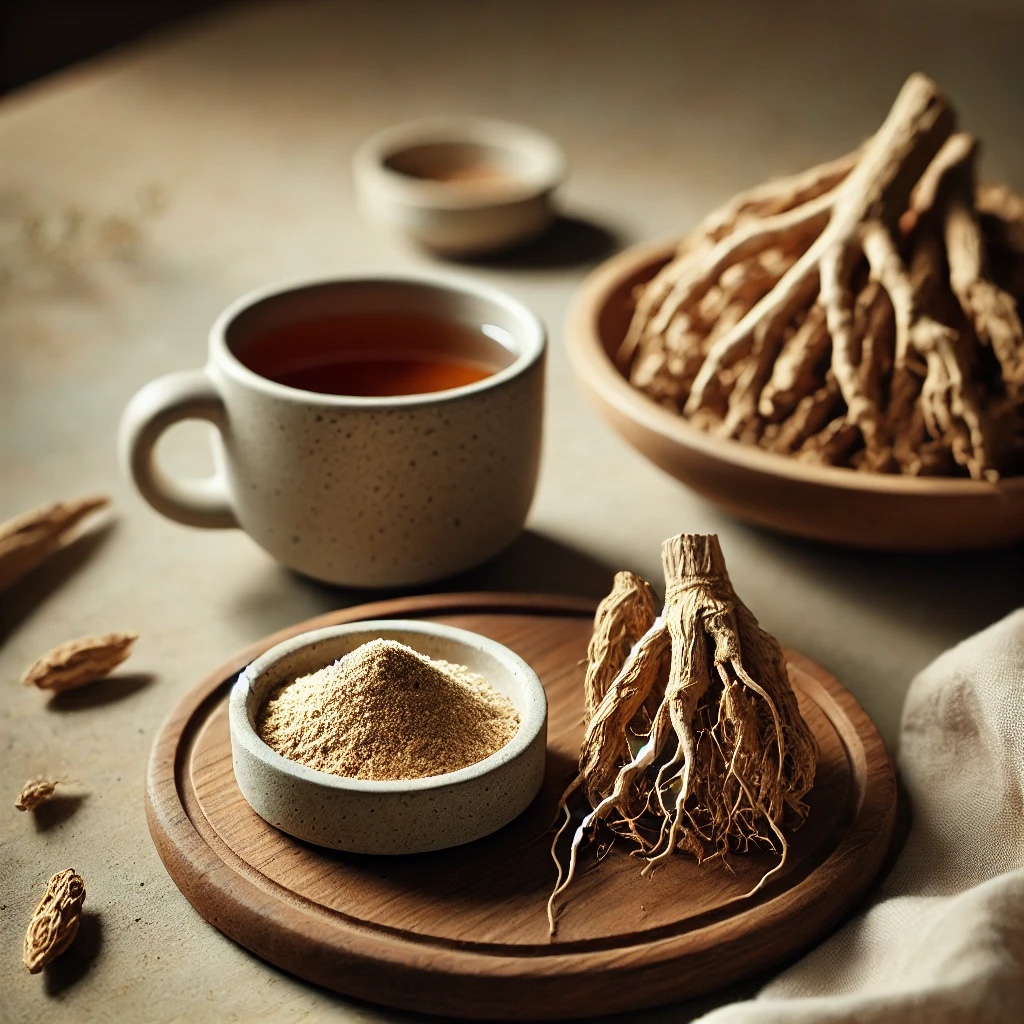
Ashwagandha is a powerful adaptogen, which means it helps your body manage stress. It’s particularly effective for those dealing with chronic anxiety, as it can lower cortisol levels – the stress hormone.
Warning: Not to be used during pregnancy
How to Use:
- Capsules or Powder: Ashwagandha can be taken in capsule form or as a powder mixed into smoothies or warm milk. You can find high-quality Ashwagandha supplements in our store here.
Advanced Tip: Pair ashwagandha with other adaptogens like Rhodiola for a more potent anti-stress regimen.
Takeaway Point: Ashwagandha helps lower cortisol, supporting long-term stress and anxiety management.
3. Chamomile (Matricaria chamomilla)
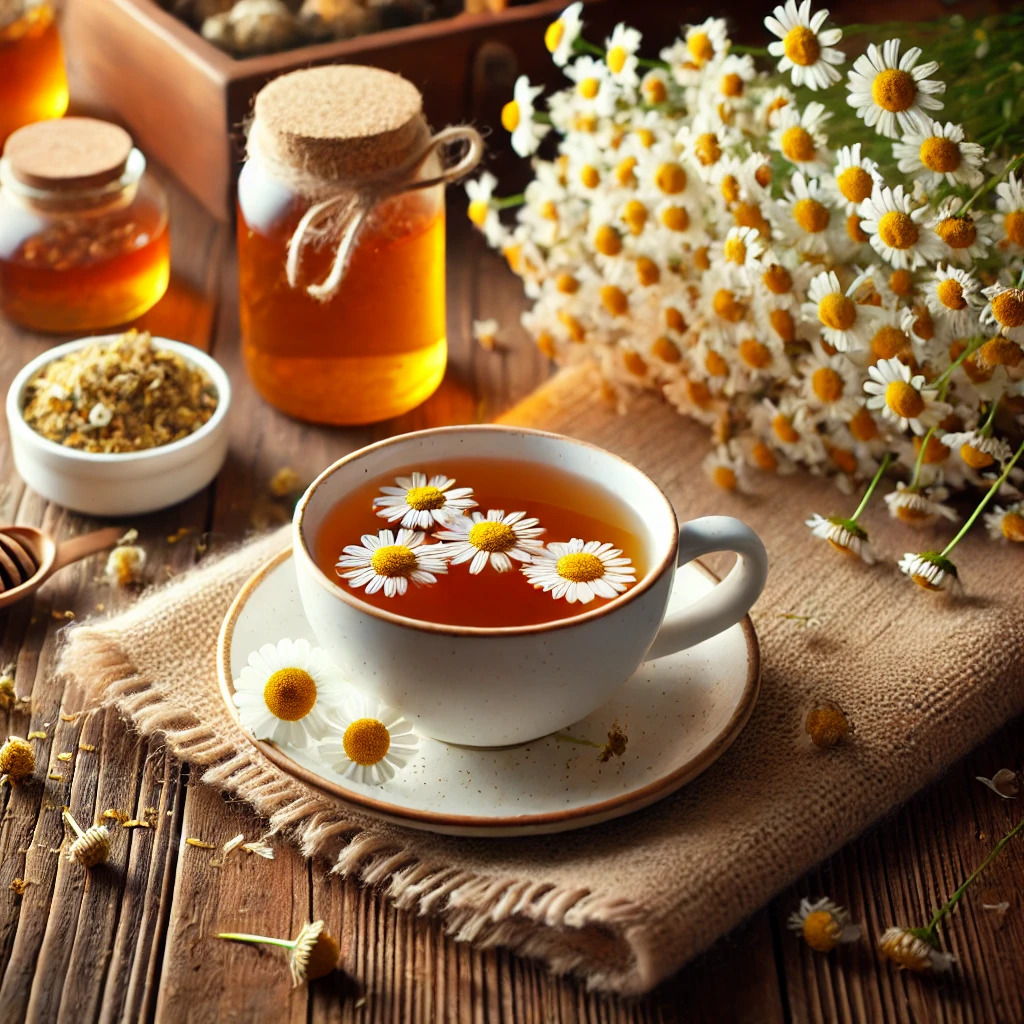
Known for its soothing effects, chamomile is a gentle herb that can reduce anxiety and promote restful sleep by calming the nervous system. Its anti-inflammatory and muscle-relaxing properties make it a popular choice for those seeking natural relief from stress-related tension. Chamomile is ideal for beginners because of its mild nature, making it a safe and effective introduction to herbal remedies without the risk of strong side effects.
How to Use:
- Tea: Brew a relaxing chamomile tea by steeping 1-2 teaspoons of dried chamomile flowers in boiling water for 5-7 minutes. Explore our selection of chamomile teas for the perfect anxiety-relieving blend.
Advanced Tip: Create a sleep-support blend by mixing chamomile with valerian root and passionflower.
Takeaway Point: Chamomile is an easy, accessible herb for daily anxiety relief and sleep support.
4. Passionflower (Passiflora incarnata)

Passionflower works by boosting levels of gamma-aminobutyric acid (GABA) in the brain, a compound that lowers brain activity and helps you relax. It’s particularly useful for reducing anxiety-related insomnia.
How to Use:
- Tea or Tincture: Passionflower can be taken as a tea or tincture, available at most health stores. Find our passionflower products here.
Advanced Tip: Combine passionflower with lemon balm in a tincture for a stronger calming effect, especially for those dealing with sleep disturbances.
Takeaway Point: Passionflower is ideal for anxiety-induced insomnia and for calming an overactive mind.
5. Lemon Balm (Melissa officinalis)
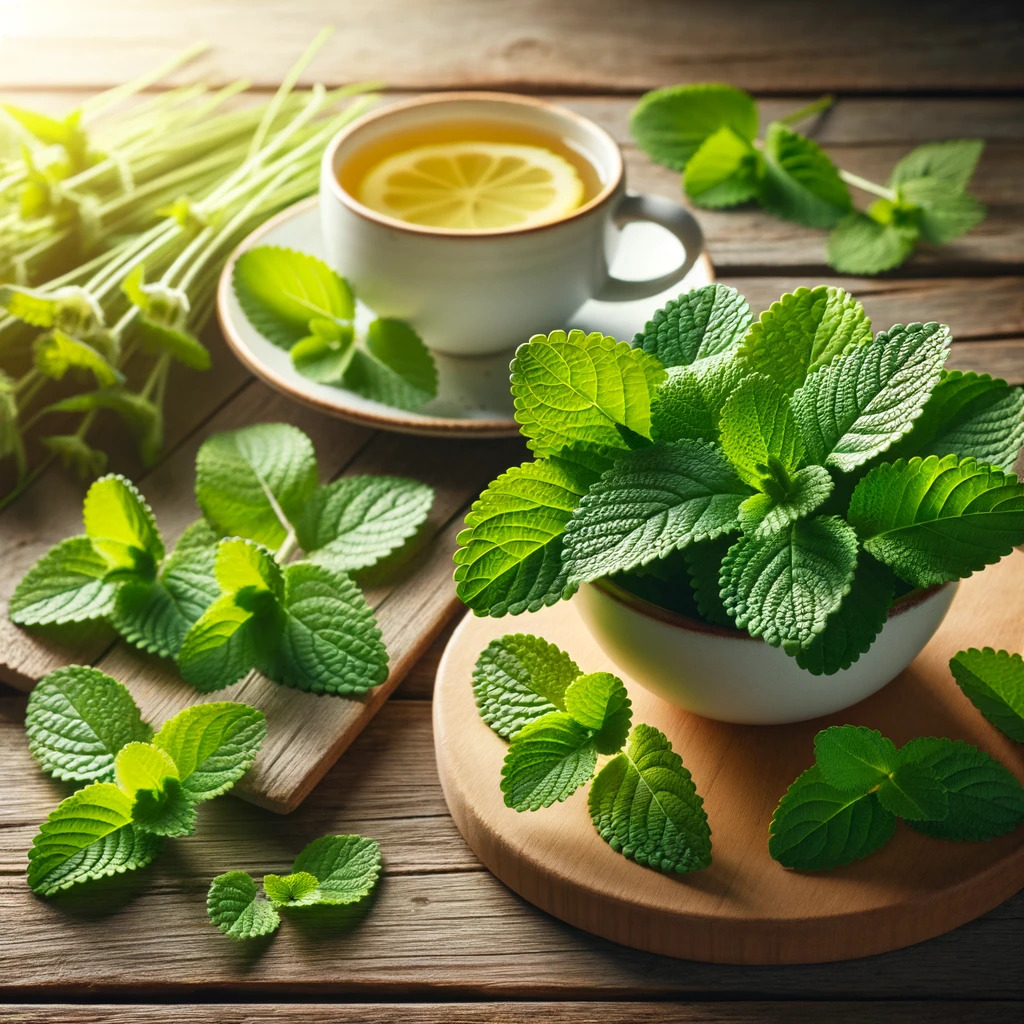
Lemon balm has a mild sedative effect, making it perfect for calming the nerves and promoting mental clarity. It’s also a great mood lifter and can be used throughout the day without causing drowsiness.
How to Use:
- Tea: Brew lemon balm tea by steeping fresh or dried leaves in hot water.
- Essential Oil: Lemon balm essential oil can be added to a diffuser for a calming, uplifting aroma.
Advanced Tip: Combine lemon balm with green tea for an anxiety-relieving tea that also boosts focus.
Takeaway Point: Lemon balm is a gentle herb that relieves anxiety without causing drowsiness, making it perfect for daytime use.
Check out our lemon balm selection.
How to Incorporate Herbs into Your Routine
Incorporating herbs into your daily routine can be as simple or as intricate as you’d like. For beginners, starting with a cup of herbal tea is an easy and effective way to get started. For more advanced readers, tinctures, infused oils, and custom blends can offer more potent relief.
Beginner’s Approach:
- Start with a cup of chamomile or lavender tea in the evening to unwind. You can find these products in our herbal tea section.
- Use lavender essential oil in a diffuser to create a calming atmosphere in your home.
Advanced Approach:
- Create custom tinctures combining passionflower and lemon balm for anxiety relief during the day.
- Use ashwagandha powder daily in smoothies to balance cortisol levels over time. Purchase Ashwagandha powder here from our store.
Takeaway Point: Herbs can easily be incorporated into your daily life, whether you’re new to natural remedies or a seasoned herbalist.
Safety and Precautions
While herbs are generally safe, it’s important to approach them with caution, especially if you’re pregnant, breastfeeding, or on medication. Always consult with a healthcare provider before beginning any new herbal regimen.
- Lavender: Avoid large doses if pregnant.
- Ashwagandha: Can interfere with thyroid medication.
- Passionflower: May cause drowsiness, so avoid operating machinery after use.
Takeaway Point: Consult a healthcare provider before incorporating herbs into your routine, especially if you’re taking other medications or have a pre-existing condition.
Check out Article: “Herbal Safety 101: What You Need to Know Before Using Medicinal Herbs”
Finding the Right Herbal Remedies for You
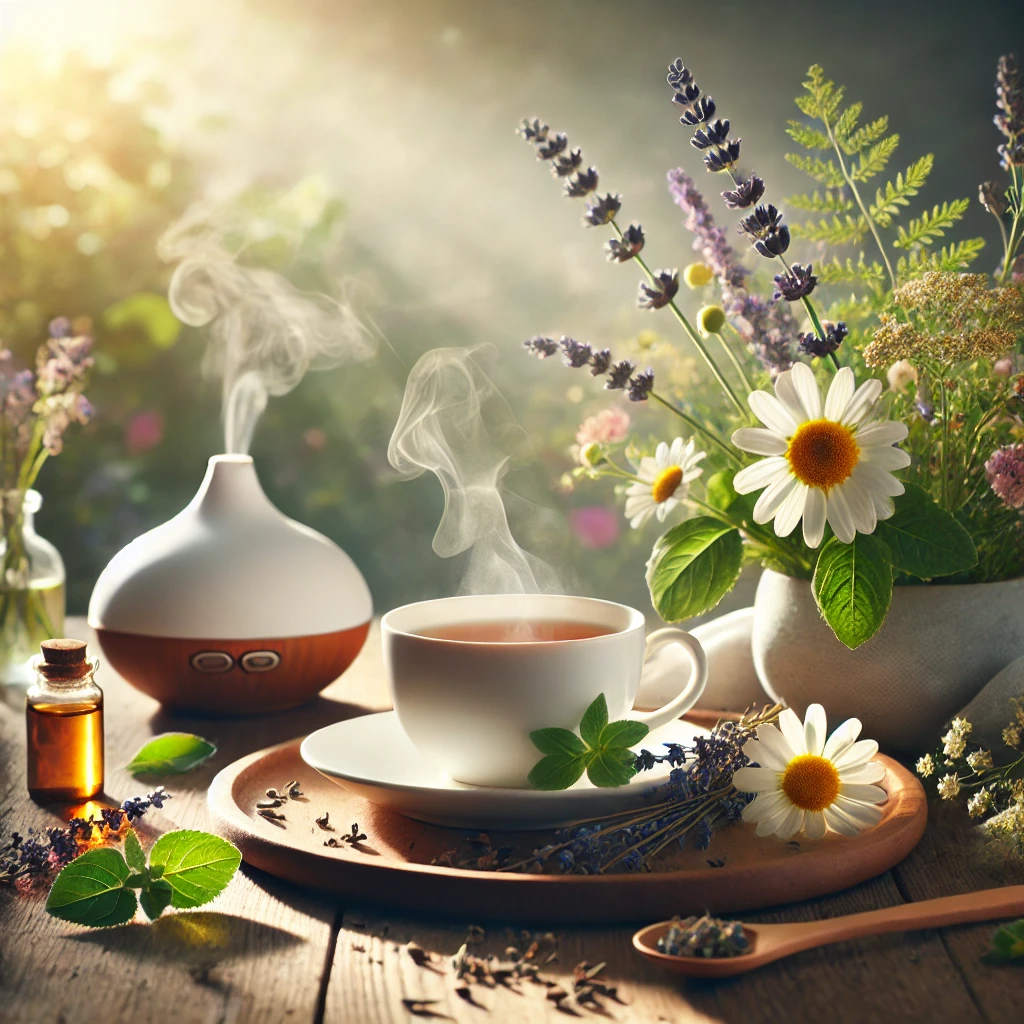
One of the most important aspects of herbal healing is finding the right herb that resonates with you. Experiment with different herbs to discover what works best for your body and mind. Start with gentle herbs like chamomile and lavender, and gradually incorporate more potent herbs like ashwagandha and passionflower as needed. You can find a variety of these herbs and more in our online store.
Takeaway Point: Experiment with different herbs to find the best combination for your unique needs. Listen to your body.
Final Thoughts: Embracing Natural Anxiety Relief
Anxiety is a natural response to the challenges of modern life, but that doesn’t mean it has to control your life. By embracing the power of herbs, you can cultivate a sense of calm and balance, allowing you to navigate stress with greater ease. Whether you’re just starting your journey or are already familiar with herbal remedies, there’s always something new to discover.
Quick Links:
- Looking for more on holistic healing? Check out our article on Harnessing the Healing Power of Crystals.
- Want to dive deeper into daily rituals? Learn how to incorporate mindfulness into your day with 10 Simple Ways to Add Magic to Your Routine.
- Ready to explore more herbs? Shop our full range of herbal products at Mystic Minerals Market.
Takeaway Point: With the right herbal approach, you can manage anxiety naturally and effectively. Start small and see the big impact herbs can have on your mental well-being.
Explore more crystal care tips and shop our collection at MysticMineralsMarket.com!
